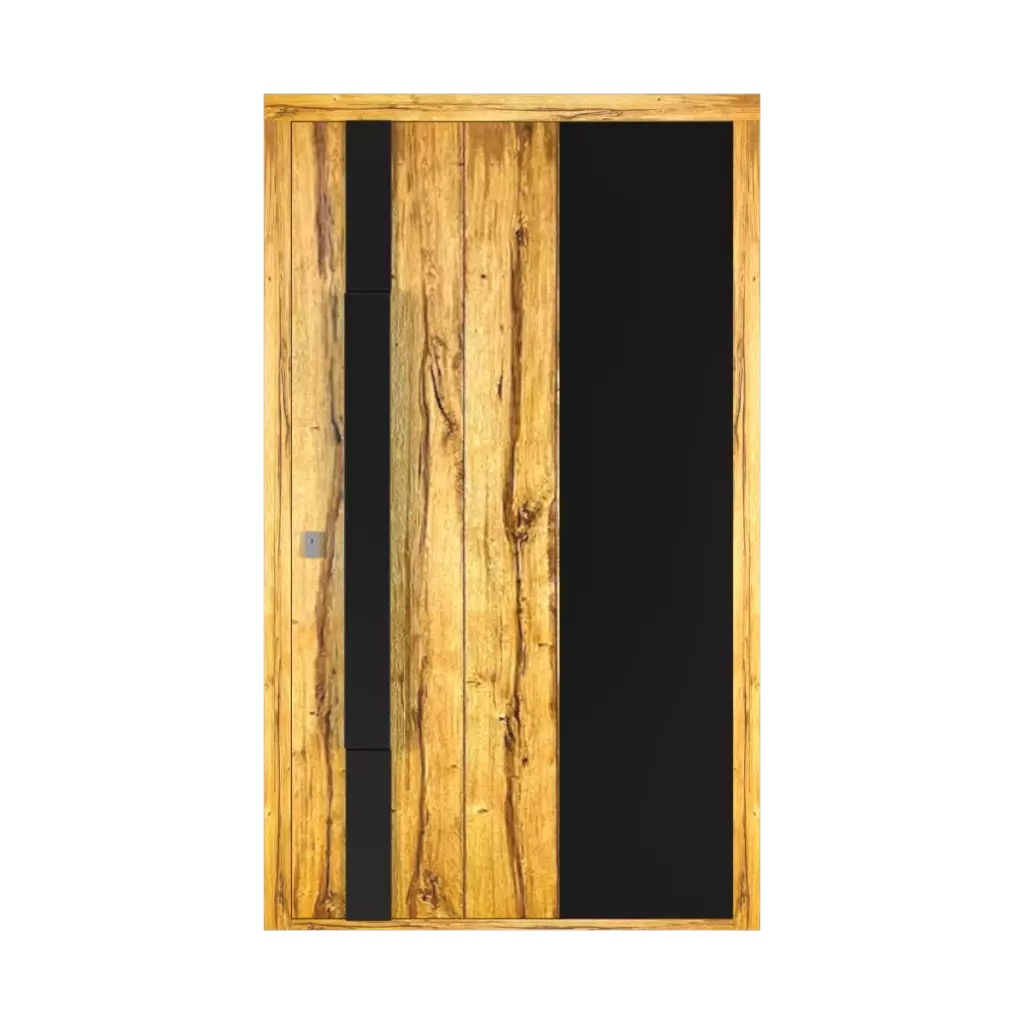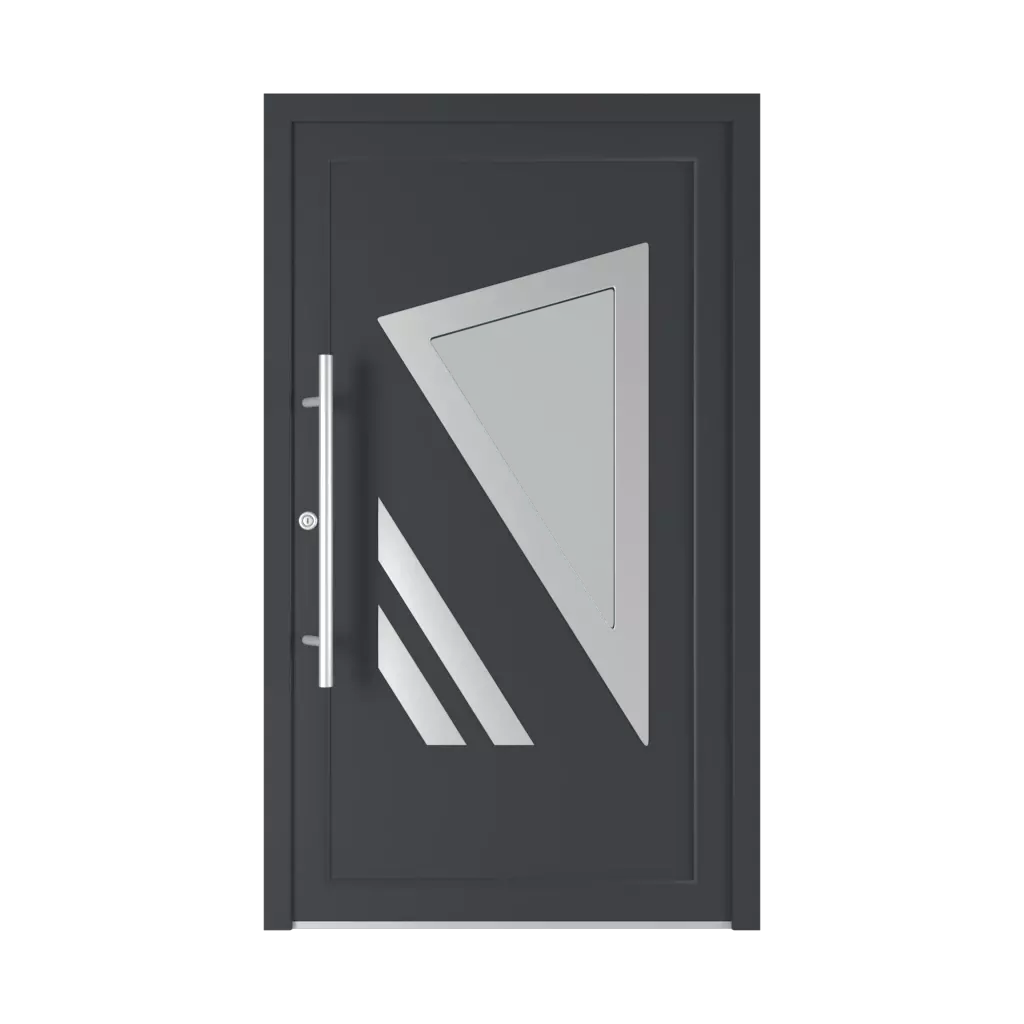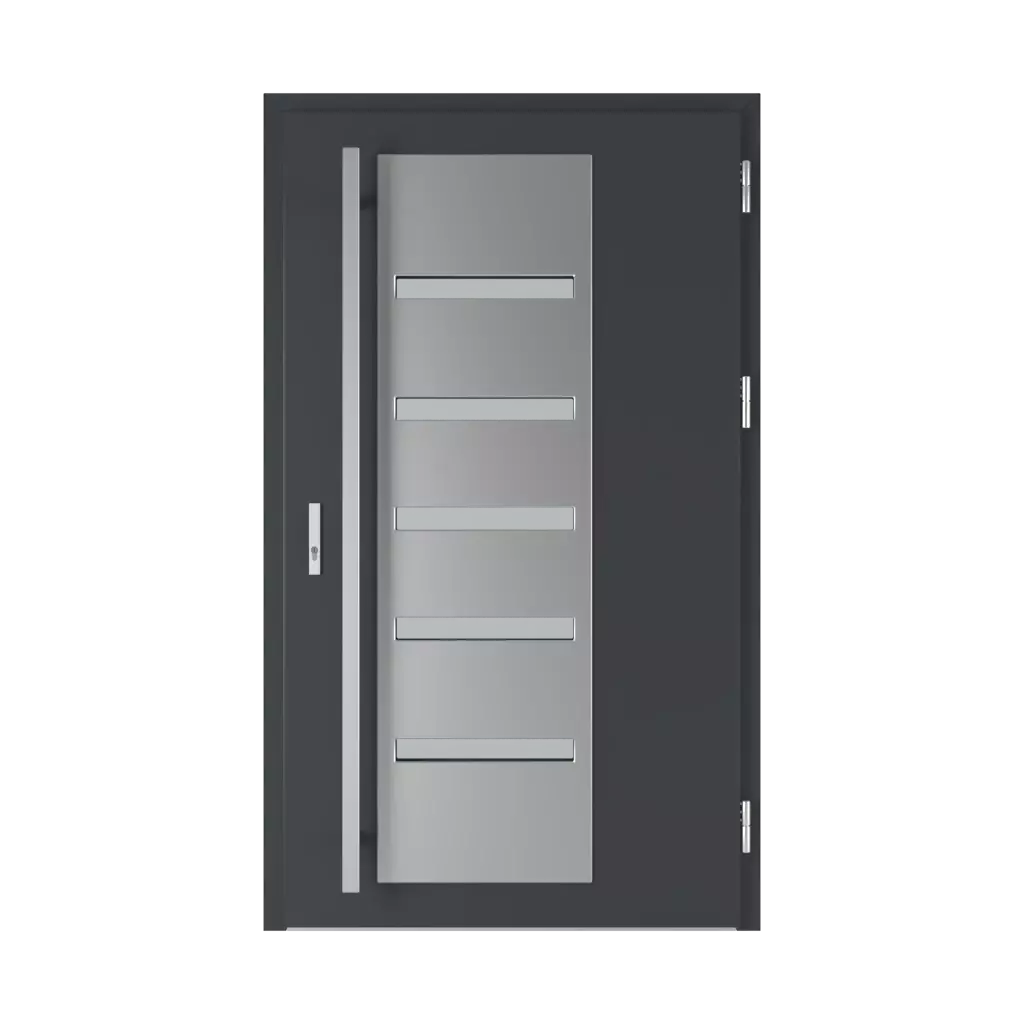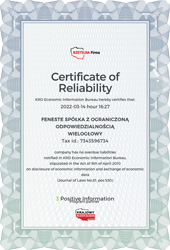What is the best material to choose for Entry doors: steel, aluminum, PVC or wood?
The choice of material for Entry doors depends on many factors, such as style, budget, aesthetic preference, durability and thermal insulation. Here is some information on each of the materials listed:
Steel:
- DURABILITY: Steel doors are known for their sturdy construction and durability. They are also very difficult to penetrate, which has a positive impact on security.
- Maintenance: unlike wood, steel does not require as much maintenance. Corrosion resistance can be increased by applying appropriate anti-corrosion coatings.
- Decent price.
Aluminum:
- Lightweight: Aluminum doors are lightweight, making them easy to install. However, despite their lightness, they are very durable and weatherproof.
- Thermal insulation: although aluminum itself is not the best thermal insulator, modern aluminum doors are often equipped with thermal breaks to improve their energy efficiency.
- More expensive doors, but very durable.
PVC:
- Thermal insulation: PVC doors are known for their good thermal insulation, which can help minimize heat loss in the home.
- Low maintenance: PVC is an easy-to-maintain material because it requires no painting or special maintenance. However, it may require regular cleaning to maintain an attractive appearance.
- PVC doors are cheap.
Wood:
- Aesthetics: Wooden doors are prized for their natural charm and elegance. They are available in a variety of wood species to match different architectural styles.
- Thermal insulation: wood is a good thermal insulator, which can help keep the temperature in the house stable.
- Maintenance: Wooden doors require regular maintenance, such as painting or varnishing, to maintain their durability and aesthetics.
- Higher price range, nevertheless great design.











